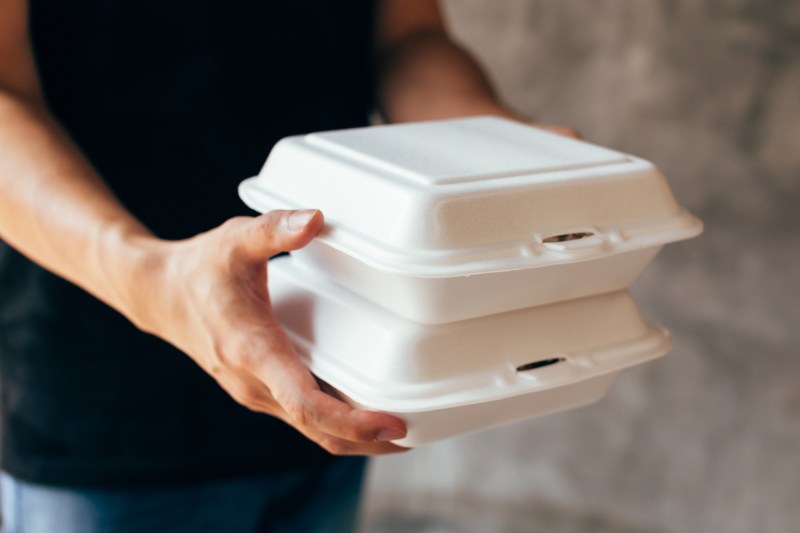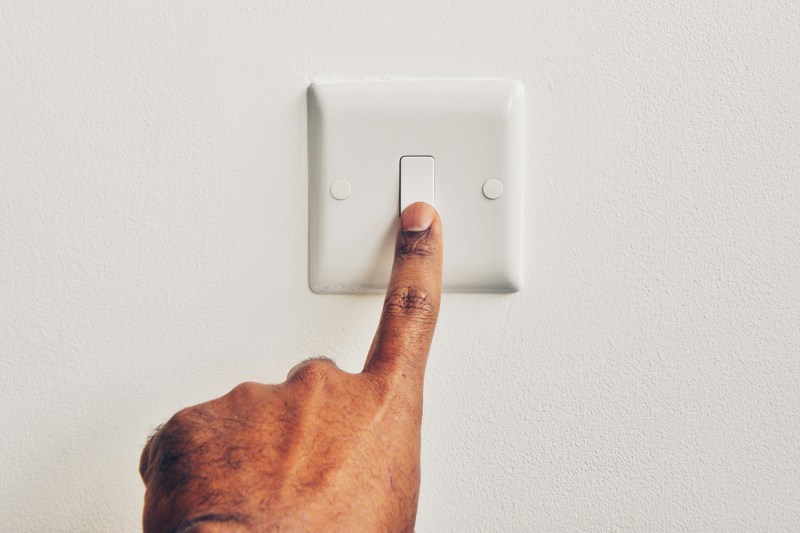Now that we’re several weeks into the quarantine and social distancing, you may feel like a bit of a slob. You may look the part of a very tired, very anxious individual, and you have every right to own that part. But as you settle into these new rhythms of survival, know that you don’t have to sacrifice everything.
In between creating new at-home projects, taking on hobbies we’ve always wanted to, or learning a new language, we’re also creating a good deal of waste. We’re not here to judge — we get it, it takes some material these days to stay healthy as a community. However, we can certainly be a little more mindful, keeping filled-to-the-brim landfills and the environment in the front of our minds as we go forth. Here’s how.
Quarantine Protocol
Almost everything you don when going out in public can be reused. Now that we’re all wearing masks, opt for cloth and wash it after every use. It may feel like you’re doing a lot of laundry these days, but you can do that more wisely as well, opting for low-water-use wash settings and even hang-drying if possible.
Most reusable gloves can be washed and reused as though they were an extra pair of hands. For disposable gloves, use them just once and get rid of them. Better still, go without gloves, as it’s just added waste and the World Health Organization suggests that they do little to protect anyway.

When you do wash your hands, be mindful of water consumption and turn the faucet off while you lather. Twenty seconds of running water adds up when you’re washing your paws countless times per day. And while a good hand washing is arguable the best way to kill germs, a good hand sanitizer is a close second (and a good way to keep your local distillery in business). Studies estimate that an average hand-washing can consume 0.7 gallons of water. Meanwhile, 1.7 gallons can be distilled into sanitizer for up to 1,000 uses. You can also be more efficient, switching over to a more resourceful faucet.
Dining
There’s no shame in the amount of frozen food and takeout you may be ingesting right now. In fact, look to support your local restaurants by ordering directly from them. In the spirit of being green, pick the closest eateries to lighten the fuel demands.
When it comes to takeout, try to go for places that use recyclable containers. Avoid drinks that could just as easily be put together and served at home as they tend to involve plastic straws and other enemies to our oceans. And order accordingly — there’s no need to hoard, especially where perishables are concerned. Food waste, while typically biodegradable, is still waste, so don’t overdo it. Compost them in your yard or in your municipal container if your city recycles food waste.
At the store, be aware of your plastic footprint. Packaged goods are popular right now as they can offer an added protective layer or at least the sense of one. However, plastic likes to hold onto germs just like naked produce does. Things at stores get handled a lot so it’s expected that just about everything will have to get sanitized. Excess packaging is not a germ fortress. In fact, one could argue that there’s more surface area for pathogens to hang out on.

The grocery store bag conversation has taken a few turns since the pandemic broke. At first, folks were advised to bring in their own reusable bags. However, because some humans are inherently untrustworthy, many stores and medical pros have reversed this approach. Reusable bags could potentially bring in germs from people’s homes or wherever they’ve been. You can reach out to your supermarket for exact details, but it seems like using store-provided bags and recycling them after use is the best current practice.
It’s also helpful to check in with your city’s waste pickup schedule, as it may have changed to better protect sanitation workers.
Home
All of this at-home entertainment, of course, puts a lot of stress on the grid. There are easy ways to limit your electricity use:
- Turn off lights when you’re not in the room.
- Keep the thermostat at a reasonable temperature.
- Defrost your frozen foods before cooking them.
- Set the fridge to 38 degrees Fahrenheit and the freezer to 5 degrees.
- Do your laundry in cold water.

There are some things you should always be doing to conserve water, although it’s easier to forget now because things are nuts. A few reminders:
- Don’t leave the water on while brushing teeth or shaving.
- Shower often but do so efficiently, employing tricks like cooler water or shampooing and conditioning simultaneously.
- Capture rainwater at your house for watering things like your plants, garden, and lawn.
- Be on the lookout for running toilets and leaks.
- Let your dishwasher do the dishes, it’s likely the most efficient way.
Commute
Fresh air has never tasted better, and that’s a fact. When you get out, do as much on foot or by bike as possible. Car exhaust is its own kind of devastating waste. You’re likely already not going to work or across town to visit friends. Take it a step further and limit scenic drives, refrain from going too far for groceries (or order online), and try to resist the urge to drive for driving’s sake. It’s amazing how instilled this practice is in our culture. Remember that there are other ways to escape (revisit a classic album, plant a garden in your yard, wander around in your neighborhood park, etc.).
Consumption
Now’s probably not the time for tricking out your car or refurnishing your living room. The pandemic economy is more of one dependent on necessary foods and hygiene items, savvy online purchases, and donations when possible to keep your favorite establishments afloat. Fighting this virus is a group effort not unlike a war. And in wartime, consuming less is for the greater good.
If you’re adhering to guidelines, you’re mostly hunkered down and limiting outings to essential ones. It’s not an ideal lifestyle but the world is thanking you for it. Coronavirus will impact us, long after the virus is stamped out. Perhaps one of the silver linings will be how we change the way we consume (whether it’s food, fossil fuels, or water). It’s uplifting to think that some of this resourcefulness might carry forward and instruct how and what we purchase in the future.
The ailing economy will need us as soon as we’re fully able, but we can be mindful, striking a less wasteful balance between what we truly need and the luxuries we occasionally deserve.


